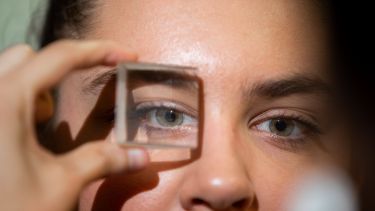Accommodation and Physiological Optics
Our research has explored the optics of prisms and the effect of Fresnel prisms on uniocular and binocular visual acuity, contrast sensitivity and colour vision. The effects in mesopic and photopic conditions have been compared.

Further work has also investigated whether monocular obliquely crossed cylinders can provide repeatable spherical blur at near and distance, by placing the circle of least confusion onto its retina whilst the fellow eyes views freely.
Research has evaluated the methods used to clinically assess the subjective near point of accommodation using the RAF rule. Further research into the clinical use of dynamic retinoscopy as an objective method to assess, measure and quantify accommodation is ongoing.
Previous collaboration with researchers at the University of Reading have investigated the presence of asymmetrical accommodation in anisometropic amblyopia, the development of accommodation and convergence and how these processes change across the lifespan, and the effect of orthoptic exercises on accommodation and convergence in a typical, young population.
Future research within the Unit aims to expand on the findings of these collaborative studies.
The Unit was recently awarded the University of Sheffield Alumni Fund Development Grant to purchase a PlusoptiX photorefractor which assesses accommodation, convergence and pupils. The equipment will be used to enhance the education of undergraduate students in the form of clinical and research skills. Clinical teaching sessions have been amended to include more hands-on practical learning in the form of workshops. The PlusoptiX will be used by final year students for their research projects and will also allow research opportunities for our MMedSci students.
Academic Staff:
Mrs Gemma Arblaster
Dr Helen Griffiths
Mr Patrick Keating
Dr Sonia Toor
Collaborators:
Dr Anna Horwood, School of Psychology and Clinical Language Sciences, University of Reading
Professor Patricia Riddell, School of Psychology and Clinical Language Sciences, University of Reading
